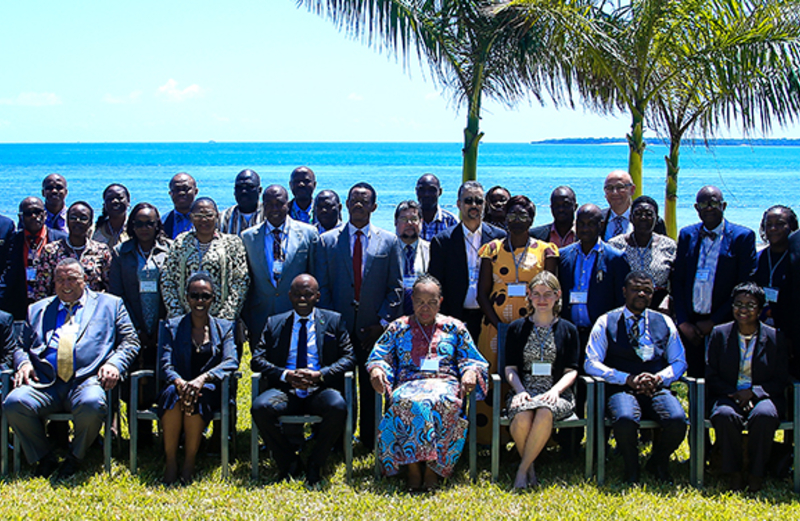Africa ups fight against fake drugs

The prevalence of Sub-standard and Falsified (SF) medical products in Africa remains a major challenge. To help address this public health issue, the NEPAD Agency, the United States Pharmacopeia (USP), Tanzania Food and Drugs Authority (TFDA), and the World health Organization (WHO) organized a meeting of public health and regulatory experts from across the African continent to establish the African Medicines Quality Forum (AMQF) to oversee the quality, safety and efficacy of medicines. The meeting took place in Dar es Salaam, Tanzania from February 12 – 15, 2018.
The AMQF’s mandate is to advance the agenda of strengthening and harmonizing national quality control laboratories and post marketing surveillance activities to help protect African patients from substandard and falsified medicines. During the event, which was opened by Tanzania’s Deputy Minister of Health, Community Development, Gender, Elderly and Children, Dr. Faustine Ndugulile, participants helped shape the proposed mandate and work plan for the AMQF and associated Technical Working Group (TWG). The AMQF will be formed under the African Medicines Regulatory Harmonization initiative (AMRH) that is coordinated by NEPAD Agency.
Emanating from the Network of Official Medicines Control laboratories (NOMCoL), whose inception was funded by the United States Agency for International Development (USAID) and supported by USP, the AMQF represents a significant advancement towards elevating and expanding the critical role national quality control laboratories play in ensuring access to high quality medicines.
“Transforming NOMCOL-SSA into the African Medicines Quality Forum is a critical step for alignment with the African Medicines Regulatory Harmonisation Initiative and a foundation for establishing the African Medicines Agency,” said Margareth Ndomondo-Sigonda – Head of Health Programmes at NEPAD Agency.
Participants at the workshop also discussed approaches to strengthen post marketing surveillance. Building on WHO guidance and best practices presented by leaders from Europe’s EDQM and Brazil’s ANVISA, participants reviewed and discussed applications for a risk-based post marketing surveillance approach developed by the Promoting the Quality of Medicines (PQM) program, a USAID-funded and USP-implemented initiative dedicated to strengthening quality assurance systems in over 20 countries worldwide.
The proposal for the official formation of the AMQF and associated TWG will be brought forward for formal endorsement by the Steering Committee (SC) on Regulatory Systems Strengthening and Harmonization Initiatives in Africa this April. Additionally, the work plan developed at the Tanzania meeting will be shared with the steering committee; key components will include advancing post marketing surveillance activities in Africa through improved coordination, information sharing and application of risk-based approaches as well as a plan to advance the capabilities of African national quality control laboratories towards achieving globally-recognized quality standards.


